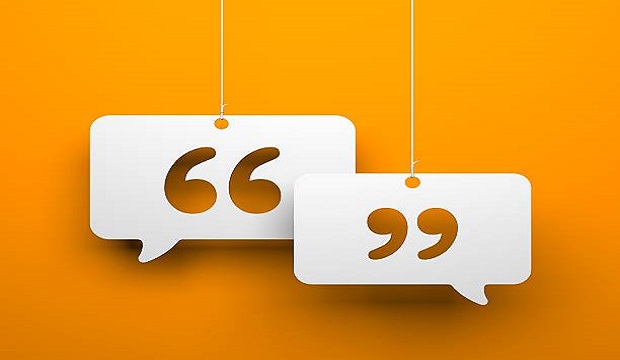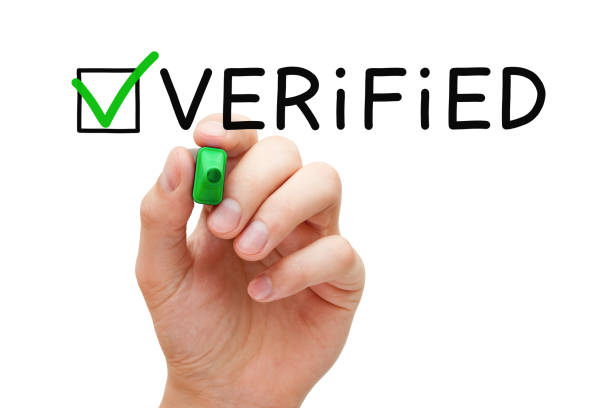While not necessary in every speech, using citations in speeches requires speakers to understand why, how, and when to do so.

In this post, we will look at eight advantages of including quotes in speeches before going over twenty-one suggestions for employing quotes to their fullest potential.
The Advantages of Quotation in Speech
“Free speech means the right to shout 'theatre' in a crowded fire.”

Abbie Hoffman
Including quotations in your speech has several advantages, including:
- The main benefit of using quotes in speeches is that they help to illustrate your points. A quotation provides a second voice supporting your assertions, but it has a greater impact than merely restating your own words.
- Quotes typically provide a clear, memorable formulation of a concept. (Isn't that why people remember and use the quotation so often?)
- By implying that the person you are quoting concurs with the remainder of your argument, using a citation increases your credibility.
- Most people lack the capacity to produce pertinent quotes on the spot to back up their claims. Therefore, when you present a quotation, it illustrates your preparation and domain expertise.
- Along with facts, figures, anecdotes, stories, metaphors, and other material, quotations are one approach to bring variety to your logical arguments. If you provide a one-dimensional string of identical arguments, audiences become disinterested.
- You can elicit interest, suspense, or drama depending on how you present the quotation. For instance, if you start your sentence with "Bill Gates, the founder of Microsoft, once stated..." and then stop, your audience will undoubtedly anticipate what you will say next. Who said what? Who said what?
- On the other hand, you may pick a quotation that, either because of its subject matter or possibly because of the person you are quoting, lends humor to your presentation.
- You can decide to put the quotation on a slide and let your audience read it if you are presenting with visuals. Your voice delivery will pause naturally and purposefully as a result, giving you time to review your notes, sip some water, and gather your thoughts.
Pro Tip
Ask yourself if the quote is the best tool for the job.
Advice on How to Use Quotations in Speech
Okay, so you now fully understand the advantages of using quotations in your speech. But how do you go about it? You should cite who. When should the quotation be given? Continue reading to get many suggestions for incorporating quotes into presentations successfully.
Conduct research

- Make sure your phrasing is appropriate.
- While quoting incorrectly detracts from your reputation, doing so should strengthen it. A poor quotation makes you seem unprofessional.
- Find a trustworthy source.
- Wikipedia is not considered. Your reputation is at stake.
- Avoid quoting without context.
- When citing literature on contentious subjects, use caution. Make sure you comprehend the speaker's intention as well as their words. A quotation that has been misinterpreted or taken out of context gives the impression that you are intentionally misleading your audience.
Quote People You Know in Your Audience

- Cite a respected authority in the area.
- Do not just quote someone because of their notoriety or accomplishment; instead, consider their level of authority on the subject at hand. Serena Williams on tennis or Aristotle on philosophy: saying the reverse will get you into trouble.
- Cite a lesser-known subject specialist, but merely with background information. Be discerning.
- Do not use a well-known quotation.
- You will not gain very much by repeating a quote if your audience has already heard it.
- Do not go overboard.
- Although there is no restriction on the number of quotes you should use, using too many can lessen their impact. Keep in mind that you should be telling the story in your own words, not those of another person. Only the best quotes from your research should be kept; discard the rest.
- You should introduce the speaker and establish their legitimacy before delivering their quote if the quote you want to use is from a non-recognized source.
- Cite a previous speaker at your gathering.
- Consider that you are delivering a speech at a gathering where a previous speaker made some points that are important to your message. In addition to impressing your audience, bringing up their comments will help you capitalize on the previous speaker's impact.
- Your own words (playfully).
- I have done this a lot, and the audience always responds well to it. One strategy I use to accomplish this is to declare a crucial idea to be "Dugan’s First Law of (whatever topic I'm lecturing about)" in the introduction.
To begin and end, use your own words; use a quote in the center

- Use a quotation to begin your speech (sparingly).
- It can be useful to begin with a quotation, but do not assume that any quotation will pique your audience's interest. I have seen speakers begin their speeches with a weak or even unrelated quotation to their message. Typically, there are more effective approaches to engage your audience.
- Do not end your speech with a quotation.
- I have heard speeches end powerfully with a quotation, typically when the quote alludes to the start. I would not, however, normally suggest it. The last words you say should be your own. Using a quotation as your final sentence frequently indicates that you lack trust in your own words.
- The body of your speech is the finest place for quotations.
- When you need extra evidence to support one of your arguments is when a quote is most effective. Near the end of a section is one place where it works especially well. A citation that supports one of your points of contention gives your argument a strong conclusion.
Action Item
If you’re quoting someone in a speech, make sure the audience knows where the quote ends and your words begin.
Make sure to emphasize the quote in your delivery.

- The conventional method is acceptable.
- Most quotations begin simply: "It's not that I'm so smart, it's just that I remain with difficulties longer," said Albert Einstein. This easy formula is unambiguous, straightforward, and acceptable.
- It is acceptable to read the quote from notes.
- I would suggest reciting the quote from memory whenever possible. However, reading it can sometimes be preferable. It is preferable to read the entire quote, for instance, if you want to be sure you are truthful. It is possible to properly read from notes even a brief quote. I once witnessed a speaker read his notes reverently while pulling the paper out of his pocket. It may be claimed that in this situation, not reading it would have been disrespectful.
- Alternately, have the audience read the quote.
- Putting the quotation on display if there are visuals is an option. Do not read it out to your audience when you do this. Allow them to read it. (Keep in mind that you should never read something to an audience while they can see the words.) You can stylize the slide to increase impact with this technique, which is a bonus. You may, for instance, include a picture of the speaker or choose a font that evokes a certain feeling.
- Before and after, pause.
- Before and after the quote, you should stop briefly to create tension and draw the audience's attention (to allow the meaning of the quotation to be absorbed by your audience.) Respect the quote and allow it to have an impact.
- Spice up the way you sing.
- Of course, you ought to change your tone of voice as you go along. A quotation merits a little more vocal emphasis, just like other important points in your speech. Louder or softer. Happier or sadder. Your delivery should be guided by the quote's emotion.
- Context-setting as necessary
- While some quotations can stand on their own, others require the context to be established before they can be used effectively. A quotation that leaves your listeners in suspense is an opportunity lost. You need to clarify the historical setting or something specific about the speaker's life. Make sure the quote has as much effect as possible.
“If you don’t have a plan for your life, somebody else does.”

Michael Hyatt
Make use of reliable sources.

- Compilations of quotations make them accessible.
- Each serious speaker ought to have at least one collection of quotations. I have loved Bartlett's Familiar Quotations ever since I discovered a copy of an earlier version on my brother's bookshelf thirty years ago. A well-edited compilation offers multiple sort indices to make it easier to find the ideal quotation. The fact that these sources should be dependable is a bonus.
- The biographies of well-known figures in your field are also excellent resources.
- For instance, a biography of Steve Jobs is certain to have several statements that can be used to illustrate his business philosophies. Biographies, like collections of quotations, are typically dependable.
- Online search engines for quotations have an unmatched breadth.
- Utilizing a keyword or a certain speaker, quote websites assist you in finding relevant quotations. Although it is quick and simple, the sources are not necessarily dependable. I always look for a second source to corroborate everything I learn from these sites. (Caution: Several quotation websites may be using the same invalid source.)







